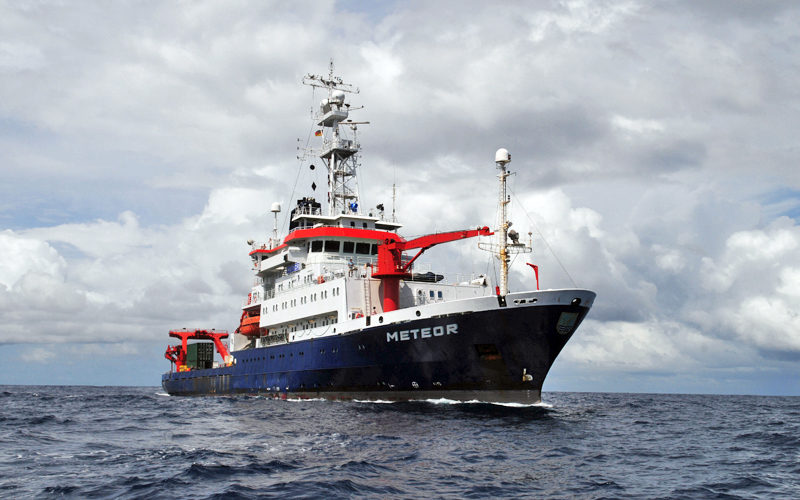METEOR M202
- Area:
- Atlantic
- Time:
-
21.07.2024 - 07.08.2024
- Institution:
- GEOMAR
- Chief scientist:
- Veronique Merten
The METEOR Expedition M202 is heading to the island of Terceira in the Azores archipelago to investigate the prey selection and behaviour of deep-diving toothed whales such as Cuvier's beaked whales, Sowerby's beaked whales, and Risso's dolphins. The Azores, a biodiversity hotspot, offer ideal conditions for studying these marine mammals.
The expedition will cover six deep-sea stations off Terceira, where numerous samples will be collected using advanced methods and technologies. Towed cameras will document species diversity in the water column, while autonomous low-light cameras will attract and observe squid in detail. Echo sounders will measure prey biomass, whose diversity will be analysed using environmental DNA (eDNA) data, and net hauls will provide further information on the prey fauna. A technical highlight of the expedition will be the use of the innovative "digital droplet PCR" (ddPCR) approach, a method for quantifying DNA and RNA molecules. This technique will be used to analyse the DNA of prey in water samples, allowing researchers to more accurately determine the number and distribution of squid and other prey in the deep-sea areas around the Azores. This method provides a detailed insight into the prey communities that are crucial for toothed whales at different depths.
One goal of the expedition is to investigate the feeding niches of different toothed whales at various depths and distances from the coast. It will also determine the biomass and distribution of squid and fish, which are the main prey of toothed whales. The diversity, size and behaviour of deep-sea squid will be studied, and the seafloor and habitats of prey organisms will be mapped to provide a comprehensive picture of their distribution.
The M202 expedition involves researchers from ten different institutes and six countries. The findings will enhance our understanding of the ecological relationships between toothed whales and their prey and provide valuable insights for the protection of these marine mammals.



